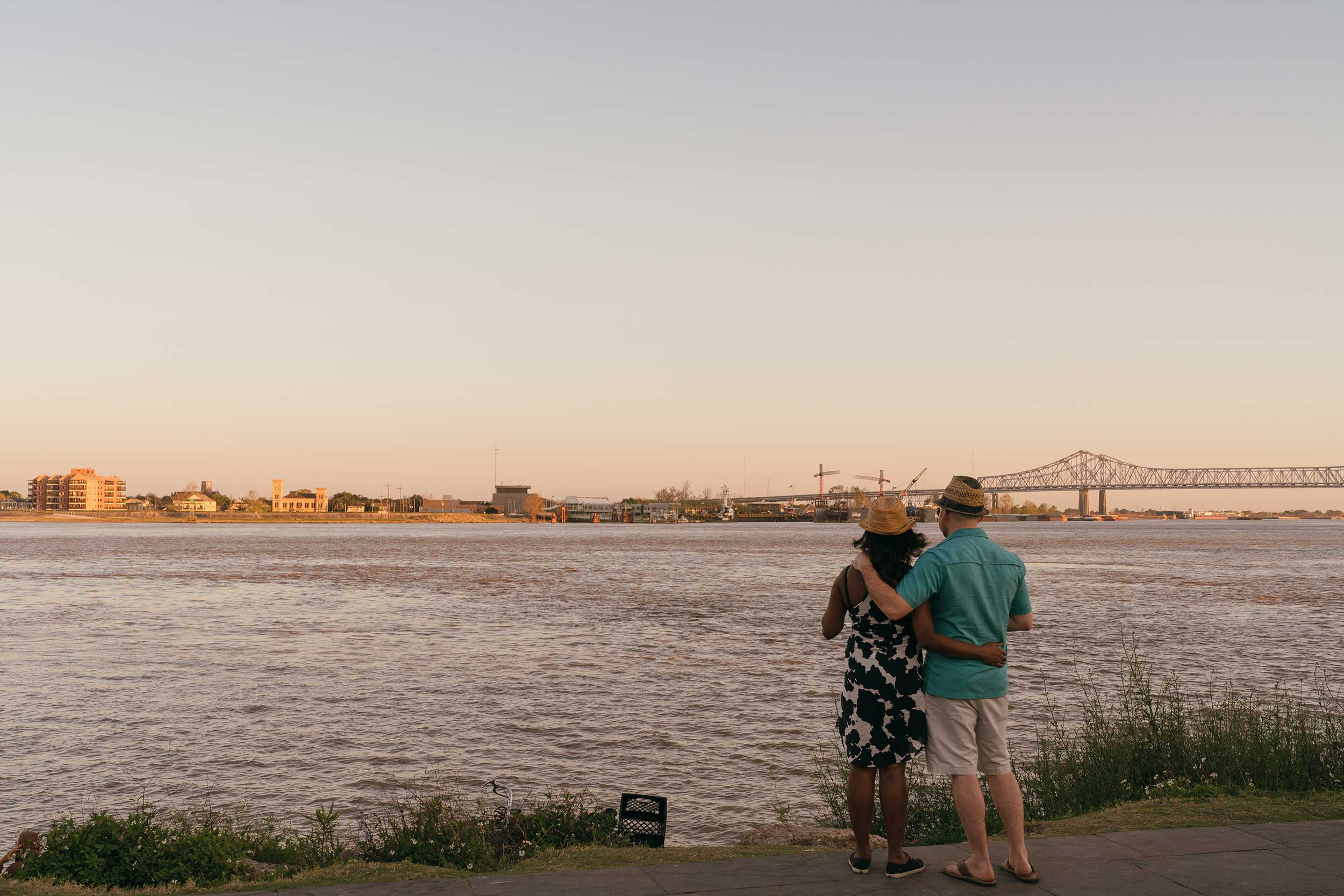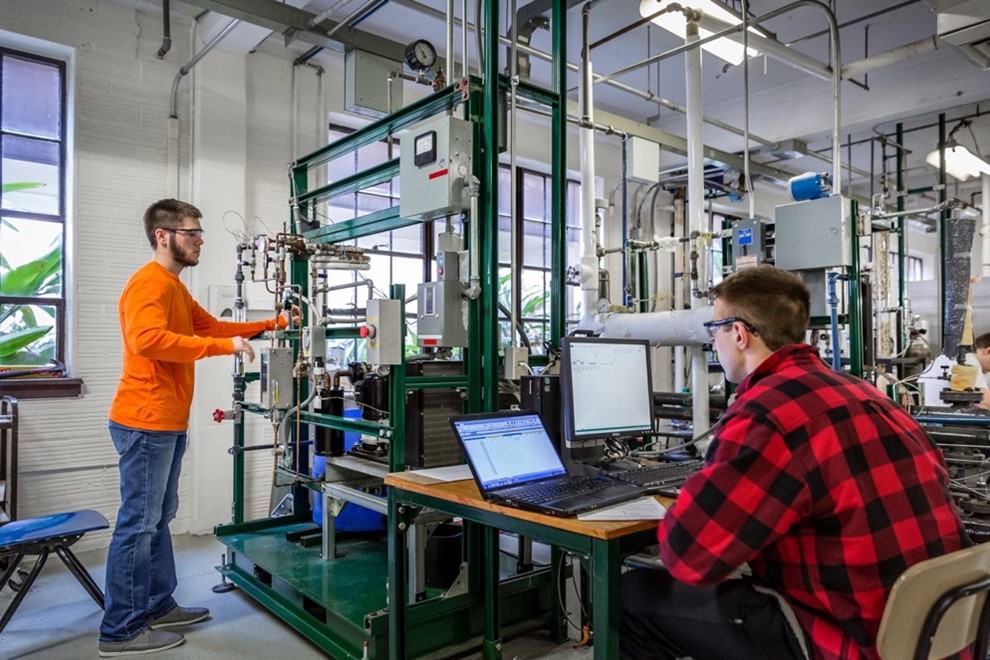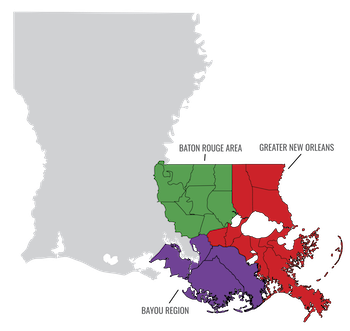
SoLA Super Region
Stretching from the mouth of the Mississippi past the state capitol building in Baton Rouge, the Southeast Louisiana (SoLA) Super Region represents the business and cultural heart of the Gulf Coast. Over 65% of Louisiana’s population and over 68% of all jobs in Louisiana are located in the Super Region, which includes New Orleans, Baton Rouge, the Bayou Region and surrounding areas.
With over 2 million people, industry that supplies the world, and culture that entertains them, the SoLA Super Region offers one of the most diverse and rewarding set of options for business in America.
The SoLA Super Region Committee is a partnership between the Baton Rouge Area Chamber, Greater New Orleans, Inc. and the South Louisiana Economic Council to foster cooperation for mutual economic benefits across southeast Louisiana. Founded in 2009, the Committee works with business interests and government bodies to pursue projects and policies that will benefit the entire SoLA Super Region.
A Super-Regional Partnership
The SoLA Super Region Committee is a partnership between the Baton Rouge Area Chamber, Greater New Orleans, Inc. and the South Louisiana Economic Council to foster cooperation for mutual economic benefits across southeast Louisiana. Founded in 2009, the Committee works with business interests and government bodies to pursue projects and policies that will benefit the entire SoLA Super Region.
“We have enormous potential when we work together as the SoLA Super Region. When we team up, we are a political force to be reckoned with.” Adam Knapp, president and CEO of the Baton Rouge Area Chamber of Commerce
“The SoLA Super Region’s strength in numbers is enhanced even further by strength in collective assets.” Vic LaFont, Executive Director of the South Louisiana Economic Council
“When all of Southeast Louisiana sticks together, we can not only drive change inside Louisiana, but also better compete with megacities like Houston outside of the State.” Michael Hecht, President & CEO of Greater New Orleans, Inc.
Strength in Numbers
Regional coalitions offer a greater population, and also greater political power.
The SoLA Super Region represents more than half of Louisiana’s legislative seats, and those voices are significantly stronger when they speak in unison.
Each legislative term, SoLA representatives advocate for select policy issues that have the potential to benefit the entire Super Region, make SoLA a more attractive place to live, work, and grow a business, and are more effectively addressed together, such as:
- State Budget Reform: Prevent budget cuts to the critical initiatives and institutions that support and propel our economy
- Funding for Higher Education Institutions: Sustaining autonomy and long-term funding
- Regional Transportation Upgrades: Advocating for investment in transportation infrastructure, including high-speed passenger rail between New Orleans and Baton Rouge
- Criminal Justice Reform: Identifying and advancing innovative strategies to reduce Louisiana’s incarceration rate (once the highest in the U.S.) and improve funding efficiencies
Superior Economic Opportunity
More people, more resources, more opportunity. 55% of Louisiana’s residents call the SoLA Super Region home, as do 62% of the state’s largest employers, which equates to more employees, customers, vendors, and partners to drive your business forward.
When this tremendous human and intellectual capital is paired with the SoLA region’s 17 higher education institutions, extensive port and trade infrastructure, the nation’s second-fastest growing airport, and some of the richest business incentives in the nation, it’s no wonder the SoLA Super Region is so consistently awarded for its economic growth and superior business climate.
Reclaiming Competitive Advantage
The SoLA Super Region comprises 55% of Louisiana’s population, 62% of its gross regional product, and 59% of its higher education institutions. When we work to advance our regional economies in parallel, rather than in tandem, we squander the competitive advantages of these pooled resources and must work harder to compete with other cities in the Southeast.
Priority: Infrastructure
As one of its legislative priorities, SoLA is seeking an increase in funding for transportation and infrastructure projects.
With a $13 billion maintenance backlog and billions more needed for major new capacity projects in the Super Region’s corridors, Louisiana must implement multiple solutions to identify funding and increase investment in transportation. This increased investment will not only help keep Louisiana families safe and ensure that existing businesses can reliably move people and goods across our State, but it will also help spur economic development and enable future growth.
SoLA’s priority transportation projects include, among others:
- deepening of the Mississippi River between New Orleans and Baton Rouge
- a new Mississippi River Bridge and connectors in the Baton Rouge Area
- completion of the I-10 widening in the greater Baton Rouge area
- a flyover exit to the new Louis Armstrong International Airport in New Orleans
- replacement of the Belle Chasse Tunnel
- upgrades to I-49 South between Raceland and Des Allemands
- a new Florida Ave. Bridge over the Industrial Canal connecting Orleans and St. Bernard Parishes
In addition to new and improved roads and bridges, we believe that passenger rail service between New Orleans and Baton Rouge would also help take cars off of the road and provide residents and employees with a convenient and reliable transportation option.
Recent survey data shows that this solution has widespread and overwhelming support throughout the Super Region, and federal funding is available to access for start-up and ongoing operational costs. We encourage the Governor’s Office, the LA Department of Transportation and the Legislature to work collaboratively to move passenger rail forward in 2020.
Priority: Workforce
As one of its legislative priorities, SoLA is asking the state to continue to invest in programs that will help grow and strengthen Louisiana’s workforce.
Economic growth in the SoLA Super Region is largely dependent on the availability of workers equipped with the right education, training and skills to meet the needs of employers.
Creating the desired qualified labor pipeline must start with greater investment in our youngest learners. After all, research shows that a dollar spent on high-quality early childhood education offers some of the highest return on investment. It benefits children by exposing them to a wider array of learning opportunities that they may not have at home, and it benefits parents by opening the door to take on employment or further their education to improve their career prospects. Longer-term, investments in quality early childhood education provide the opportunity to transform the next generation by helping students close the achievement gap and realize more positive outcomes down the road. We urge the Legislature to increase the State’s investment in early childhood education and to work collaboratively and creatively with local governments and other stakeholders to identify reliable funding sources for increased access to early childhood education into the future.
Looking further down the education path, programs like Jump Start are also helping provide our students with more skills, industry credentials and opportunities for success while helping address the workforce needs of our state. Fewer than 2% of students graduated with a career diploma prior to Jump Start, but today more than 1 in 5 students graduates with a career diploma and Jump Start credentials. Unfortunately, our ability to measure the true success of Jump Start, which includes not only whether a student obtains a credential but also whether he or she obtains employment in that field, is currently hindered by restrictions on sharing student data. We encourage legislators to allow limited student data-sharing to facilitate more robust and accurate measurement of Jump Start’s success.
Priority: Auto Insurance
As part of its legislative priorities, SoLA is seeking lower auto insurance rates by creating a more fair, predictable legal climate.
Louisiana’s sky-high car insurance rates hurt working families, many of whom struggle to afford transportation. They also hurt businesses who need to move goods across our state but face premium costs higher than almost any other state in the country. While there are many variables that determine premium costs, Louisiana’s legal climate stands out when compared to other states. Our jury trial threshold, for example, is more than three times higher than any other state, and Louisiana’s unique direct-action statute allows plaintiffs to sue “deep pocketed” insurers directly. In most states, plaintiffs must sue only the individual person or persons who caused the alleged damage. By aligning Louisiana’s legal system more closely with other states, we can attract more insurance companies, provide consumers with more choices, and drive down rates, creating a win-win situation for both families and businesses.



